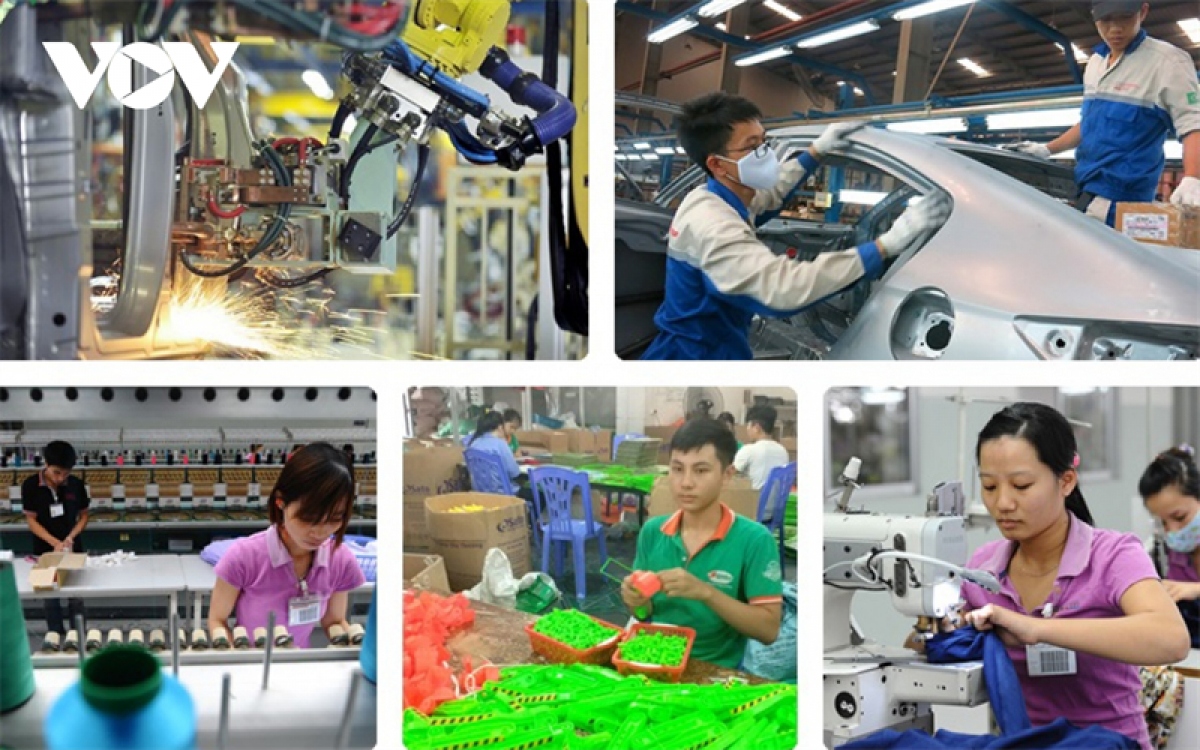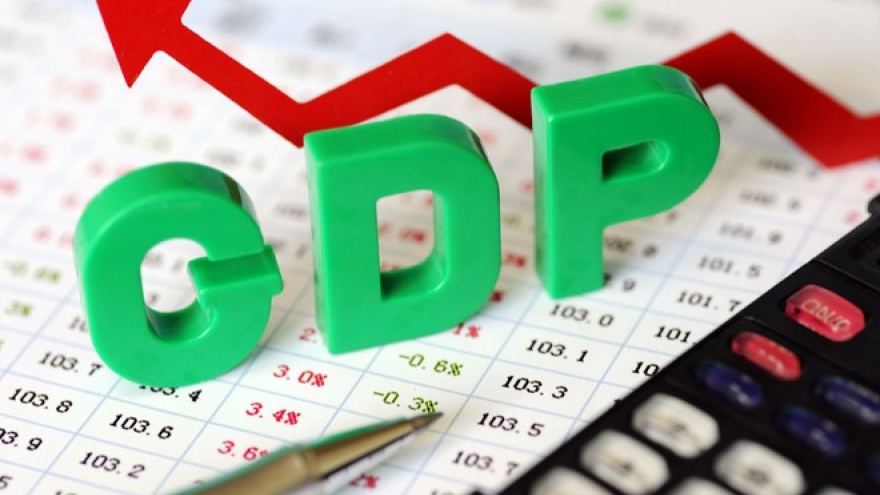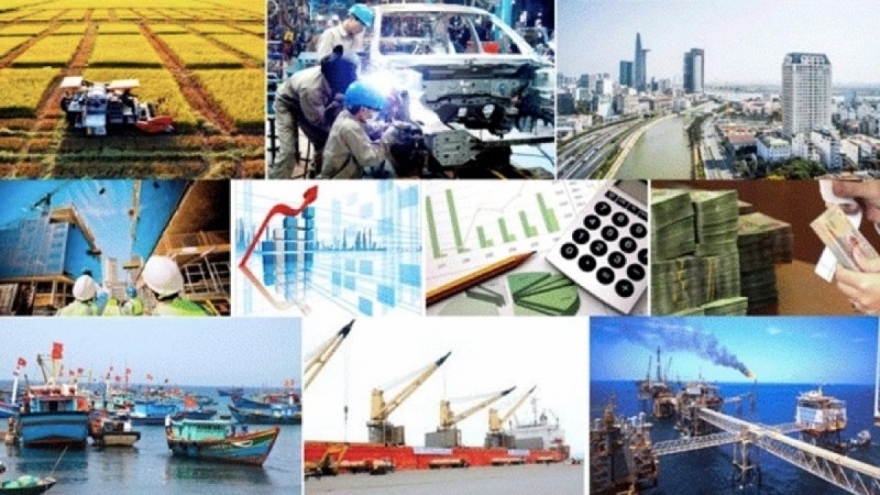UOB maintains Vietnam’s 2022 GDP growth at 6.5%
VOV.VN - Singapore-based United Overseas Bank (UOB) has maintained Vietnam’s GDP growth forecast at 6.5% and inflation at 3.7% for this year, although it anticipates inflation would rise to 5% ahead in 2023.
Its latest report, the bank notes the manufacturing sector continued to record strong growth at 9.24% in the first five months of the year in comparison to 8.28% recorded in in the initial four months.
This performance is also reflected in the purchasing managers’ index (PMI) which was in its eighth month of expansion in May.
Furthermore, foreign direct investment (FDI) inflows into Vietnam rebounded in May despite enduring a period of instability due to the Russia-Ukraine conflict coupled with rising commodity prices.
According to UOB, the consumer side has seen several positives over recent months due to the lifting of domestic COVID-19 restrictions and the reopening of cross border travel, both of which have injected fresh life into the services sector after a period of stagnation. The bank expects tourism dependent sectors such as accommodation and food to return to growth ahead in the second quarter following nine straight quarters of decline.
UOB says it has kept the nation’s GDP growth forecast for the year at 6.5%, in line with an official projection of between 6.0% and 6.5%. This forecast assumes that GDP growth in the second quarter of the year will pick up its pace to reach 6% on-year, growing further to 7.6% ahead in the third quarter.
However, according to UOB experts, several external risks look set to pose challenges to this outlook, including the Russia-Ukraine conflict and its impact on commodity prices. Other issues include inflation risks on domestic and external demand, global supply chain disruptions, macroeconomic factors, and continued COVID-19 risks.
After reaching its lowest figure in February at 1.4% on-year, UOB notes that inflation in Vietnam has been trending up, rising 2.86% in May. The elevated price of global energy and food, as well as supply chain disruptions, have contributed to the jump in Vietnamese inflation.
“With the Russia-Ukraine conflict stretching beyond 100 days and showing no signs of easing of tensions and sanctions, we expect Vietnam’s headline inflation rate at 3.7% in 2022 and rising further to 5% in 2023,” the bank projects.
With the uncertain outlook from geopolitics and domestic inflation remaining well managed, UBO says that the State Bank of Vietnam (SBV) can afford to keep its policy rate steady for now to support the recovery efforts.
“We expect the current refinancing rate at 4.0% and rediscounting rate at 2.5% to remain at these record low levels until at least end-2022”, says the bank.
However, with the US Federal Reserve poised to be more aggressive in its policy tightening, UOB anticipates the SBV to lean towards beginning its rate hiking cycle from 2023 or earlier, if growth momentum stays intact and external risks less concerning.
In term of currency, the local currency (VND) is not spared from the Asia-wide weakness inflicted by the aggressive repricing in Fed rate hike expectations and concerns of a deeper China slowdown.
According to UOB, USD/VND rose about 1.7% in the second quarter of 2022 to 23,215, the highest level since August 2020.
“Cushioned by a strong growth outlook and domestic inflation remaining under control, the VND weakness is modest when compared to the Asia Dollar Index (ADXY) which fell over 4% in the quarter”, it says.
Going forth, UOB expects Asia emerging currencies such as the VND, weighed by the risk off sentiment as the Fed looks set to front load its rate hikes further in the second half of 2022.
“As such, we update our USD/VND forecasts to reflect a steeper upward trajectory. Our updated forecasts are at 23,400 in the third quarter of 2022, 23,500 in the fourth quarter of 2022, 23,550 in the first quarter of 2023, and 23,600 in the second quarter of 2023”, it concludes.





